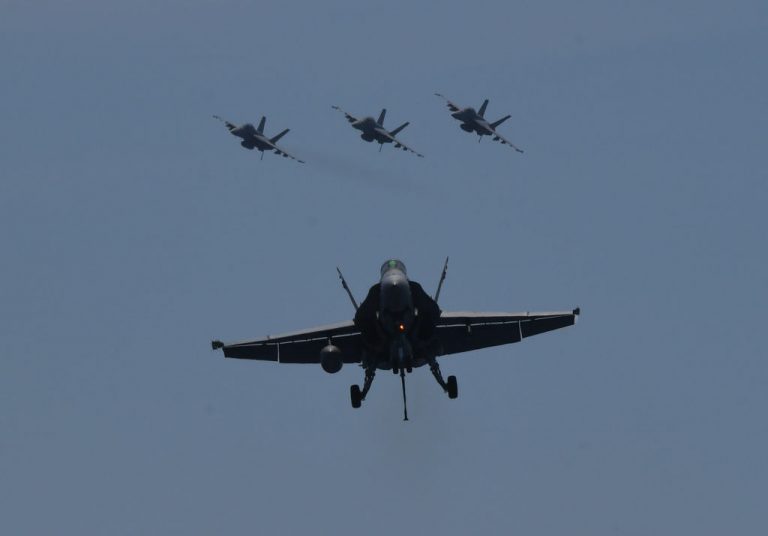The Japanese government has been increasingly vocal about strengthening cooperation with the United States to confront communist China on multiple issues, ranging from regional security to human rights. Kong Xuanyou, the Chinese ambassador to Japan, spoke at a forum held by the International Academic Society for Asian Community. He warned Tokyo that its ties with Washington must not endanger the interests of communist China.
“Japan’s dismissive attitude towards Taiwan, Xinjiang and Hong Kong is especially apparent these days, and has seriously disturbed China-Japan relations… [We] hope Japan, as China’s close neighbor, will uphold its promises, and express basic respect for China’s domestic issues, and stop hurting China’s core interests, and avoid further damaging the bilateral relationship,” Kong said.
Kong added that Beijing has never asked Tokyo to choose between communist China and the United States; China has also never intervened in the development of their relations. However, “the Japan-U.S. alliance must not harm China’s interest,” Kong said. The minister hopes that Japan will make “practical moves” that signal the possibility of developing a “stable relationship” with communist China.
The ambassador to Tokyo also criticized the formation of groups “disguised as a form of multilateralism” that are in fact “exclusive in terms of ideologies.” His comment possibly refers to the U.S.-led Quad. Kong said that such “fake multilateralism” would negatively affect peace in the region.
The minister’s statements come as Japan is increasingly taking a position that is confrontational to Chinese Communist Party (CCP) interests. In July, Tokyo released its annual defense white paper, mentioning the stability of the Taiwan Strait for the first time.
Success
You are now signed up for our newsletter
Success
Check your email to complete sign up
The paper warned that Beijing has intensified military activities around the island nation by sending 380 warplanes into Taiwan’s airspace last year. Communist Chinese warships also sailed the Bashi Channel, a waterway that connects the western Pacific Ocean with the South China Sea. China even conducted a military drill in the area.
“Stabilizing the situation surrounding Taiwan is important for Japan’s security and the stability of the international community,” the paper stated.
The white paper immediately attracted criticism from communist China. Beijing called it interference with its own internal issues. Chinese defense ministry stated that the Taiwan issue is “entirely China’s internal affair;” external forces “cannot interfere” in the matter. It accused the defense paper of having “exaggerated the so-called Chinese threat.” It blamed the paper for harming bilateral relations between the two Asian superpowers.
In a July 7 op-ed published in CCP-backed The Global Times, Chinese military expert Song Zhongping said that Japan will “not dare to confront China alone.” He warned that any military action from Tokyo will only invite its demise.
“If Japan involves itself in the Taiwan question militarily, it will be Japan digging its own grave. Japan’s military capability is completely restrained by the U.S. and does not have an independent combat capability. It is easy for the People’s Liberation Army (PLA) to paralyze the attack capability of the Japanese Self-Defense Forces. Japan itself is powerless against the Chinese military,” the article stated.
US-Japan military cooperation
According to a report by the Financial Times, U.S. and Japanese military officials have begun planning for a potential conflict between Beijing and Taipei. The U.S. and Japan are engaging in joint exercises and tabletop war games, for example. Japanese defense minister Nobuo Kishi stated that broad international pressure was needed to prevent Taiwan’s future from being determined via military confrontation.
“We’re seeing various moves by China that work to envelop Taiwan,” Kishi said.
In July, the U.S. Marine Corps held a drill together with Japan. The orders in the drill were given in Japanese for the first time. The aim of the exercise was to enhance the partnership between the two forces.
“They are learning and practicing Japanese phrases that will help them share information at the tactical level on the battlefield with their Japanese counterparts to help us fight together as an integrated force,” U.S. marines told Kyodo News.
In late July, defense chiefs of Washington and Tokyo held a phone conference in which they agreed to strengthen the response and deterrence capabilities of the alliance. They also talked about the issue of communist China expanding its military presence in the South China Sea. The talks followed U.S. defense chief Lloyd Austin’s trip to the Southeast nations of the Philippines, Vietnam, and Singapore.
“Austin’s trip to the Southeast Asian countries clearly shows that the United States will deeply commit to this region’s security and is very significant,” Kishi told reporters.
















